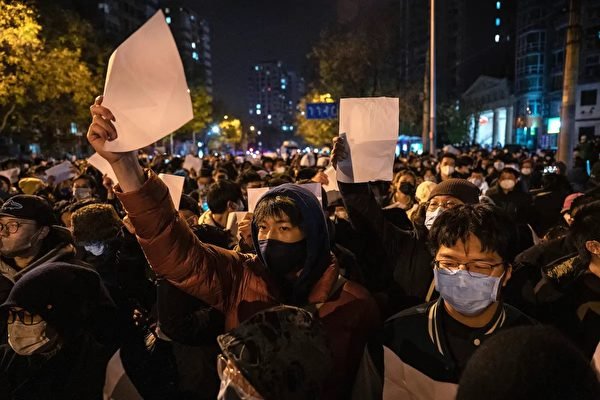Amid the economic downturn, the number of rights protection protests in China has sharply increased. Data collected by the “China Dissent Monitor,” established by the overseas human rights organization “Freedom House,” shows that public protest events in the third quarter of this year increased by 27% compared to the same period last year, with the majority of events related to economic issues.
On Thursday, November 21, the “China Dissent Monitor” released a research report on the third-quarter protests in China. The organization recorded a total of 937 public protest events from July to September 2024, mostly initiated by workers (41%), property owners (28%), and rural residents (12%).
The remaining protests in the third quarter were driven by a diverse group including parents, students, investors, consumers, members of religious or ethnic minority groups, and activists.
The region with the highest number of protest events was Guangdong (18%), followed by Shandong, Sichuan, Henan, and Zhejiang.
Furthermore, a recent property owner rights protest in Shanghai indicates that protest groups in China have expanded to include millionaire class individuals, signaling intensifying social contradictions in present-day China.
On November 18, more than a hundred property owners in Suhe Bay, Jing’an District, Shanghai took to the streets to protest against incomplete construction, only to face violent suppression by the police.
Zeng Jianyuan, Chairman of the Taiwan Association for Chinese Democratic Academy, previously told Dajiyuan that historically, protest groups have mainly consisted of ordinary laborers because they are easily exploited by employers. However, the current situation in mainland China is very different, with even capitalists coming out to protest, indicating a very severe economic situation.
Zeng mentioned, “If people are pushed to a point where they can’t sustain their lives, the legitimacy of the Communist Party’s rule – which is based on economic development and nationalism – will be greatly weakened. The combination of international pressure and domestic opposition will force different voices to emerge within the Communist Party, sparking an overall progressive transformation in China.”
In the latest report, the “China Dissent Monitor” analyzed 174 cases of citizens resisting for community autonomy, where property owners fought back against property management companies’ alleged abuses of power and excessive control.
According to the monitor, there was a significant increase in the number of protests against property management companies in the third quarter.
Although the trend is partly related to adjustments in data collection methods, it is also associated with increased online discussions nationwide about abolishing property management companies.
The report mentioned that earlier this year, during the National People’s Congress, a delegate proposed amendments to the property management regulations. Subsequently, rumors online suggested complete abolition of property management, leading to increased public discussions on the topic.
The report highlighted that the CCP authorities view property management companies as the first line of defense in social management.
When property owners attempt to democratically establish homeowner committees to regain the powers usurped by property management companies, they often face strong resistance or even repression from the companies or local governments.
Researchers anticipate that as concerns about China’s economic downturn intensify, the number of dissent events in October is expected to reach the highest record since the database’s inception in June 2022.
Kevin Slaten, the chief researcher of the China Dissent Monitor and a Taiwan-based analyst, who is fluent in Chinese, was quoted by Bloomberg saying, “One of the main drivers of economic protests is the massive impact of the struggling real estate industry.”
Slaten added, “The government’s injection of funds to address these issues reflects its urgency, partly driven by the growing dissatisfaction and concerns about frequent grassroots protests.”
Due to strict censorship by the CCP on related information, the nonprofit organization “Freedom House” initiated a research project two years ago to systematically collect, organize, and analyze protest activities in China. The project focuses on 500 prefecture-level city protest samples, studying protests’ methods, characteristics, reasons, and more, regularly publishing analysis reports on the overseas “China Dissent Monitor.”
Since data collection began in June 2022, the “China Dissent Monitor” has documented 7,377 protest events.
In the second quarter of 2024, the “China Dissent Monitor” recorded 805 protest events, an 18% increase from the same period last year, with the majority being labor protests (44%) and property owner protests (21%).

